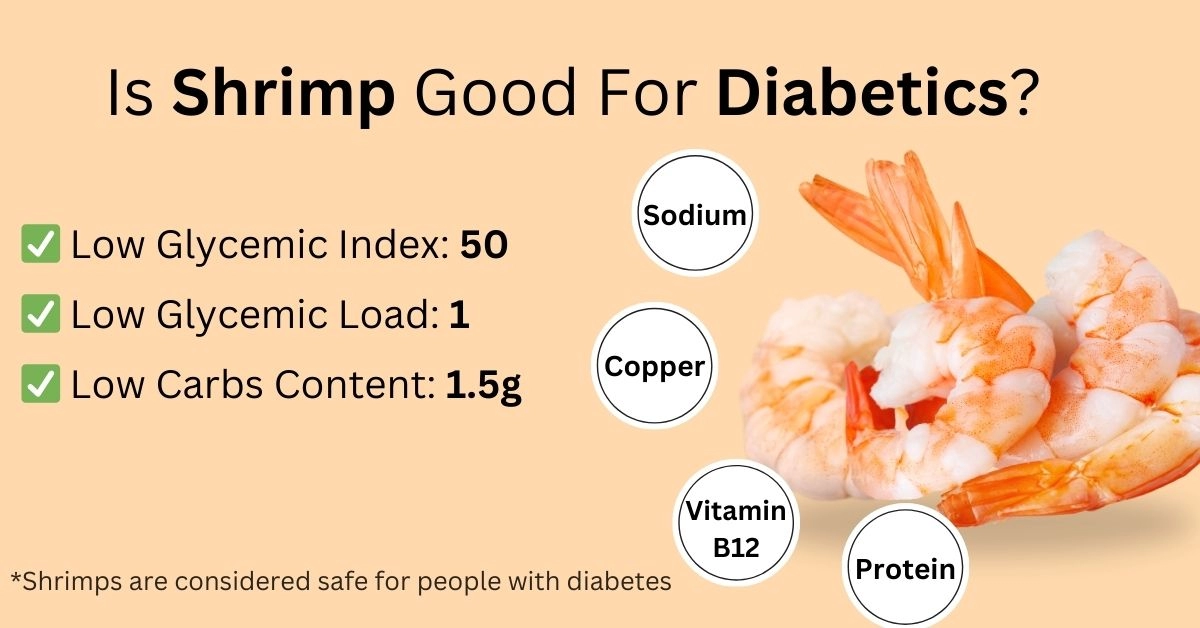Shrimp and Diabetes - Is it Good For Diabetics

Introduction
Most studies consider seafood to be a pretty healthy food group. Today we’ll talk about how shrimp can help with blood sugar levels and whether they are safe to consume for people with diabetes.
Glycemic Index and Carbohydrates
The total amount of carbohydrates you consume may affect your blood sugar levels, so tracking the carbs number you eat is essential.
Shrimps have a low carbohydrate content and low glycemic index. They provide 0.2g of carbs per 100g.
The GI value of shrimp equals 50, which is considered a low GI. Because of their low carbohydrate and sugar content, shrimp are considered safe for people with diabetes. As a result, shrimps do not affect blood glucose levels.
Besides, shrimp is high in omega-3 fatty acids, which can benefit diabetes (1).
To see the GI values of 350+ foods, you can visit our Glycemic index chart page.
Type-2 Diabetes
According to one study (2), adipose tissue dysfunction may be one of the underlying mechanisms in obese people who develop insulin resistance and type 2 diabetes.
According to research, eating seafood can help prevent obesity; there is also a case for eating seafood to help prevent insulin resistance.
Another study (3) indicates that people with metabolic disorders such as type 2 diabetes and non-alcoholic fatty liver disease have lower levels of omega-3 fatty acids in their blood. Low omega-3 fatty acid levels are also linked to increased insulin resistance.
A 2018 review (4) shows that omega-3 supplements improve cardiovascular markers in type 2 diabetic patients. The study discovered that supplementation is linked to significant reductions in LDL cholesterol, VLDL cholesterol, and triglycerides.
Because shrimps contain a lot of cholesterol, eating too many of them can raise your cholesterol and spike your blood sugar.
Some studies indicate that only a quarter of the population is sensitive to dietary cholesterol. For the rest of us, dietary cholesterol may have only a minor effect on blood cholesterol levels. However, be mindful of shrimp consumption; keep it in moderation.
